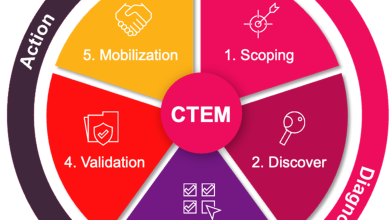
The concept of artificial intelligence starting a business raises questions about legal recognition and practical feasibility. While AI itself cannot yet independently form a Limited Liability Company (LLC) under current laws, it can play a significant role in managing and operating businesses with human oversight. AI-driven enterprises benefit from forming LLCs, which provide liability protection, tax advantages, and business credibility, essential for navigating the evolving AI landscape.
The emergence of autonomous AI agents capable of complex decision-making is pushing the boundaries of traditional business models. Entrepreneurs and innovators are exploring how to leverage AI tools to streamline startup processes and enhance operational efficiencies within LLC structures. This shift signals a future where AI-led enterprises might operate more independently, but the legal framework still requires clear human involvement in business formation and compliance.
Understanding the relationship between AI capabilities and LLC formation is crucial for anyone interested in AI entrepreneurship. It offers insight into how businesses can protect assets and comply with regulations while embracing AI innovations.
Can AI Start a Business? LLC Formation and Legal Foundations
Starting a business with artificial intelligence raises important questions about legal structures, operational roles, and regulatory responsibilities. Understanding how AI interacts with LLC formation, ownership rights, and compliance requirements is essential for those considering AI-led enterprises.
Legal Status of Artificial Intelligence in Business Creation
Currently, AI is not recognized as a legal person or entity under U.S. law. This means AI cannot independently form or own an LLC. Instead, a human or legal entity must act as the official founder and manager during LLC registration.
Some business laws suggest AI could assist in managing or operating LLCs, but legal rights and responsibilities remain with the human members or managers. In Nevada, LLC formation follows state-specific rules requiring designated agents and responsible parties who are legally accountable.
The evolving legal landscape may eventually define AI’s role more clearly, but for now, AI functions as a tool rather than a business entity with legal personhood.
AI Tools and LLC Formation Processes
AI tools can streamline various stages of forming an LLC, such as generating documents, conducting name availability searches, and handling filings. Services using AI can reduce errors and speed up incorporation processes in states like Nevada.
For those interested in LLC formation in Nevada, leveraging AI tools can streamline the process and ensure compliance with state requirements as AI continues to shape the future of entrepreneurship.
Despite AI’s efficiency, human oversight is necessary to meet legal requirements, including selecting registered agents, drafting operating agreements, and filing official paperwork. Automated platforms can assist but cannot replace legal counsel or responsible parties.
Using AI tools effectively provides practical benefits like cost savings and improved accuracy. However, the ultimate responsibility for LLC formation lies with the individuals controlling the business.
Ownership, Liability, and Compliance for AI-Led Enterprises
In an AI-led enterprise, humans must own the LLC and remain accountable for its actions. Legal frameworks assign liability to these individuals or entities, not to the AI systems themselves.
Owners gain protection through the LLC’s limited liability status, shielding personal assets from business debts and lawsuits. However, compliance with state laws, regulations, intellectual property rights, and contractual obligations remains the owners’ duty.
In Nevada, strict compliance with filing deadlines, tax regulations, and registered agent requirements is critical. Ethical use of AI and transparency in operations also play roles in meeting legal and regulatory standards.
The Future of AI-Led Enterprises: Innovation, Efficiency, and Scale
AI-led enterprises are transforming how businesses innovate, optimize operations, and grow at scale. They leverage emerging technologies to reimagine workflows, improve customer interactions, and sustain competitive advantages through automation and data-driven strategies.
Generative AI and the Rise of Solo Entrepreneurs
Generative AI enables solo entrepreneurs to create products, services, and content with minimal human input. Tools powered by this technology can design marketing materials, draft legal documents like LLC formation papers, and even generate code for websites or apps.
This reduces the need for large teams, lowering barriers to entry for business formation. By automating creative and administrative tasks, solo operators can launch ventures faster and operate leaner. Generative AI acts as a co-founder, providing constant ideation and execution support.
Competitive Advantage and Operational Efficiency in AI-First Companies
AI-first companies gain a competitive edge by embedding automation into core processes. They use AI for predictive analytics, inventory management, and workflow orchestration, which minimizes errors and accelerates decision-making.
Operational efficiency is achieved through continuous optimization where AI systems autonomously adjust strategies based on real-time data. This reduces reliance on manual intervention and improves productivity. Businesses adopting these models often see improved margins and quicker response times.
AI Adoption, Customer Engagement, and Business Scalability
Widespread AI adoption allows enterprises to personalize customer experiences at scale. AI-driven chatbots, recommendation engines, and sentiment analysis tools enhance engagement by delivering tailored solutions instantly.
Such technologies enable businesses to handle larger volumes without proportional increases in cost or staff. Scalability is supported by cloud-based AI platforms that manage demand fluctuations and enable rapid market expansion. For businesses considering structural growth, forming a Limited Liability Company can provide additional benefits. Additionally, LLC formation in Nevada offers strategic advantages for expanding enterprises.





